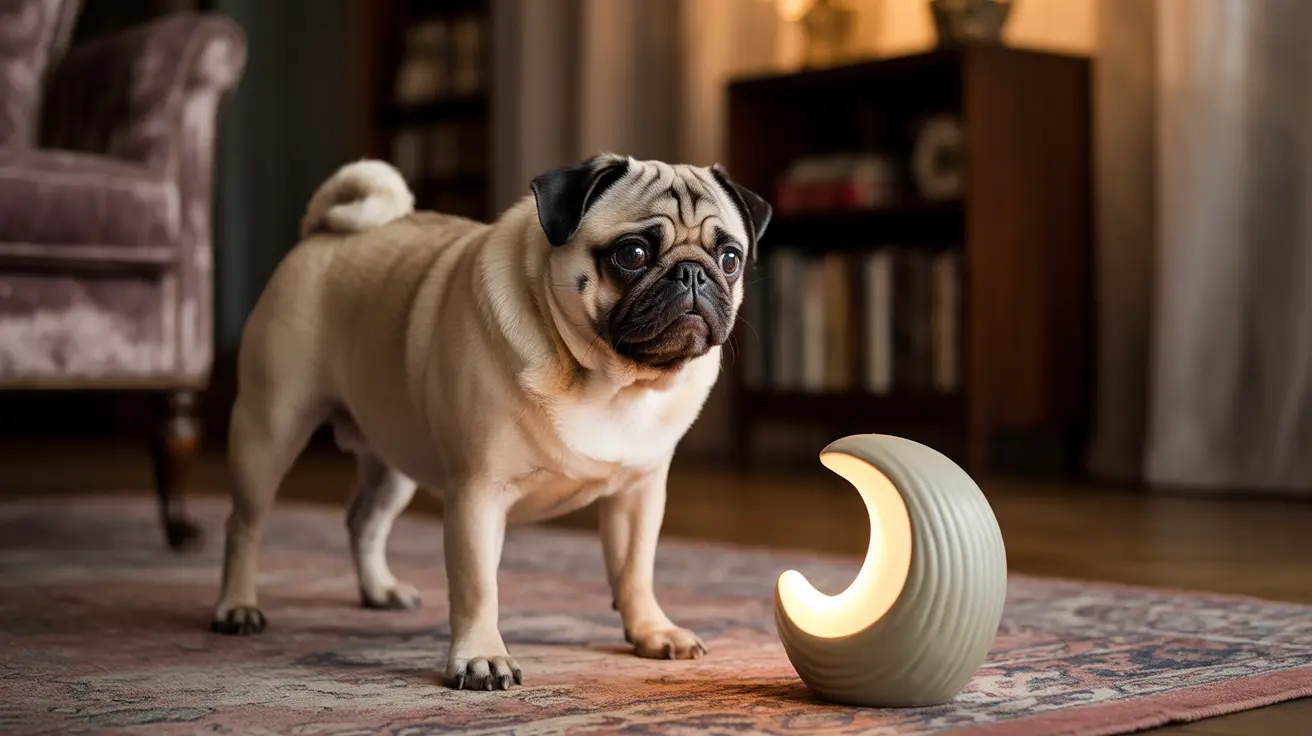Dogs are remarkable creatures with extraordinary sensory abilities, but many pet owners wonder about their furry companions' relationship with darkness. While dogs possess superior night vision compared to humans, some may still experience anxiety or fear when the lights go out. Understanding the nuanced reasons behind nighttime stress can help pet owners provide better comfort and support for their four-legged friends.
This comprehensive guide explores the complex world of canine nighttime behavior, examining why some dogs might feel uneasy in the dark and how owners can help them feel more secure.
Canine Night Vision: A Natural Advantage
Contrary to popular belief, dogs are naturally well-equipped to navigate dark environments. Their eye structure provides several unique advantages that make nighttime navigation relatively easy:
- Large pupils that allow more light to enter
- High concentration of rod cells for enhanced low-light perception
- Reflective layer behind the retina (tapetum lucidum) that amplifies available light
How Dogs Perceive Darkness
While their vision is significantly better than humans, dogs don't just rely on sight. Their acute sense of hearing and smell play crucial roles in understanding their nighttime environment. These heightened senses help them feel secure and gather information about their surroundings, even in complete darkness.
Common Triggers of Nighttime Anxiety in Dogs
Although most dogs are comfortable in dark settings, some may develop anxiety due to various psychological and physiological factors:
Separation Anxiety
Many dogs experience increased stress when left alone in dark spaces, associating darkness with loneliness and potential abandonment. This can trigger significant emotional responses, including whining, pacing, and destructive behaviors.
Age-Related Vision Changes
Senior dogs with declining eyesight might feel more vulnerable in low-light conditions. As their visual acuity diminishes, they may become less confident navigating dark rooms, leading to increased anxiety and restlessness.
Previous Negative Experiences
Dogs with traumatic memories related to nighttime events—such as loud noises, unexpected disturbances, or past frightening experiences—might develop a generalized fear of darkness.
Recognizing Signs of Nighttime Anxiety
Behavioral Indicators
Dogs experiencing dark-related stress might display:
- Persistent whimpering
- Trembling or cowering
- Attempting to escape dark rooms
- Excessive pacing
- Reluctance to sleep alone
Understanding Individual Differences
It's essential to recognize that each dog's response to darkness is unique. While some might feel completely comfortable, others could exhibit more pronounced anxiety symptoms.
Supporting Your Dog's Nighttime Comfort
Creating a Safe Environment
- Use gentle nightlights in sleeping areas
- Maintain consistent bedtime routines
- Provide comfortable, familiar sleeping spaces
- Consider calming background sounds
Professional Support
If your dog's nighttime anxiety persists or significantly impacts their quality of life, consulting a veterinary behaviorist can provide tailored strategies and potential treatment options.
Frequently Asked Questions
Are dogs truly afraid of the dark, or is it something else?
Most dogs aren't inherently afraid of darkness. Their anxiety typically stems from associated experiences, separation issues, or sensory changes rather than the darkness itself.
How can I tell if my dog's nighttime anxiety is caused by the dark or separation issues?
Observe your dog's behavior when left alone at night. If anxiety manifests primarily during darkness and involves signs of distress related to being alone, it might indicate separation anxiety rather than a direct fear of the dark.
Why do older dogs seem more afraid of the dark than younger dogs?
Aging dogs often experience reduced vision and heightened sensory sensitivity, which can make dark environments feel more threatening and unfamiliar.
What are effective ways to help my dog overcome fear of the dark?
Gradual desensitization, creating a comfortable sleep environment, using nightlights, maintaining consistent routines, and positive reinforcement can help reduce nighttime anxiety.
Can dogs see well enough in the dark to feel safe, or do they need night lights?
Dogs have excellent night vision, but providing a soft nightlight can offer additional comfort and help them feel more secure, especially for dogs with vision changes or anxiety.






